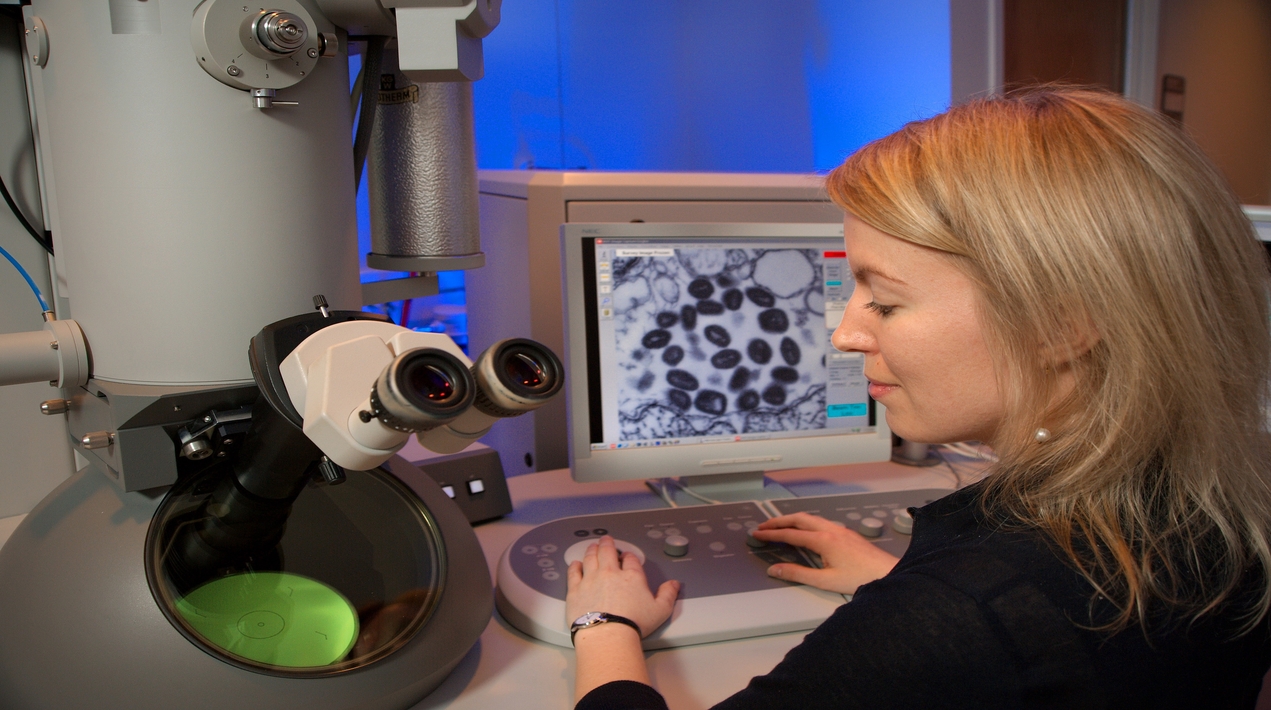
World-first nanotechnology developed by the University of South Australia could change the lives of thousands of people living with cystic fibrosis (CF) as ground-breaking research shows it can improve the effectiveness of the CF antibiotic Tobramycin, increasing its efficacy by up to 100,000-fold.
The new technology uses a biomimetic nanostructured material to augment Tobramycin – the antibiotic prescribed to treat chronic Pseudomonas aeruginosa lung infections in severe cases of CF – eradicating the infection in as little as two doses.
In Australia, cystic fibrosis (CF) affects one in 2500 babies – or one baby born every four days – causing severe impairments to a person’s lungs, airways and digestive system, trapping bacteria and leading to recurrent infections. Lung failure is the major cause of death for people with CF.
The UniSA research team, which includes Professor Clive Prestidge, Dr Nicky Thomas, and PhD candidate, Chelsea Thorn, says the discovery could transform the lives of people living with CF.
CF is a progressive, genetic disease that causes persistent, chronic lung infections and limits a person’s ability to breathe. The disease causes thick, sticky mucus to clog a person’s airways, attracting germs and bacteria, such as Pseudomonas aeruginosa, which leads to recurring infections and blockages.
Tobramycin is commonly used to treat these infections but increasingly antibiotics are failing to make any significant difference to lung infections, leaving sufferers requiring life-long antibiotic therapy administered every month.
The team’s research successfully treats advanced human cell culture lung infections using nano-enhanced Tobramycin and shows how it can eradicate serious and persistent infections after only two doses.
“This could be a real game-changer for people living with CF,” Thorn said.
Researchers enhanced the Tobramycin with a biometric, nanostructured, lipid liquid crystal nanoparticle (LCNP)-based material, testing it on a new lung infection model to showcase its unique ability to penetrate the dense surface of the bacteria and kill the infection.
Dr Nicky Thomas, who is supported by a Mid-Career Fellowship from The Hospital Research Foundation Group, says the discovery continues the global battle to eradicate and prevent Pseudomonas aeruginosa.
Tobramycin works by inhibiting the synthesis of bacteria and causing cell membrane damage. Yet, as it’s a concentration-dependent antibiotic, achieving a sufficiently high concentration is critical,” Dr Thomas says.
The team’s technology improves the performance of Tobramycin without increasing the toxicity of the drug, so what we’re doing is a far more effective and efficient treatment for chronic lung infections. The technology is currently entering pre-clinical trials and hopes to be on the market in the next five years.
The research group for this study includes the University of South Australia; the Basil Hetzel Institute for Translational Health and Research; the ARC Centre for Excellence in Bio-Nano Science and Technology; the Biofilm Test Facility at UniSA’s Cancer Research Institute; the Helmholtz Institute for Pharmaceutical Research Saarland; and Saarland University.
UniSA’s use of nanotechnology in the medical field
Bowel cancer survival rates could be improved if chemotherapy drugs were delivered via tiny nanoparticles to the diseased organs rather than oral treatment.
That’s the finding from Indian and Australian scientists who have undertaken the first study, using nanoparticles to target bowel cancer, the third most common cancer in the world and the second-most deadliest.
The researchers have shown in animal experiments that nanoparticles containing the chemotherapy drug Capecitabine (CAP) attach themselves directly to the diseased cells, bypassing healthy cells and therefore reducing toxic side effects as well as the size and number of tumours.
The scientists, from the Manipal Academy of Higher Education, Indian Institute of Science and the University of South Australia, have published their findings in the journal Carbohydrate Polymers.
CAP delivered via nanoparticles reduces both the size and number of cancerous bowel tumours, results in fewer abnormal cells, improved red and white blood cell counts and less damage to other organs. The targeted delivery system has a dual function: binding the receptors as well as releasing the drug to the tumour micro-environment.
The researchers believe the platform technology developed can be applied to other cancers and chemotherapeutic drugs.
















